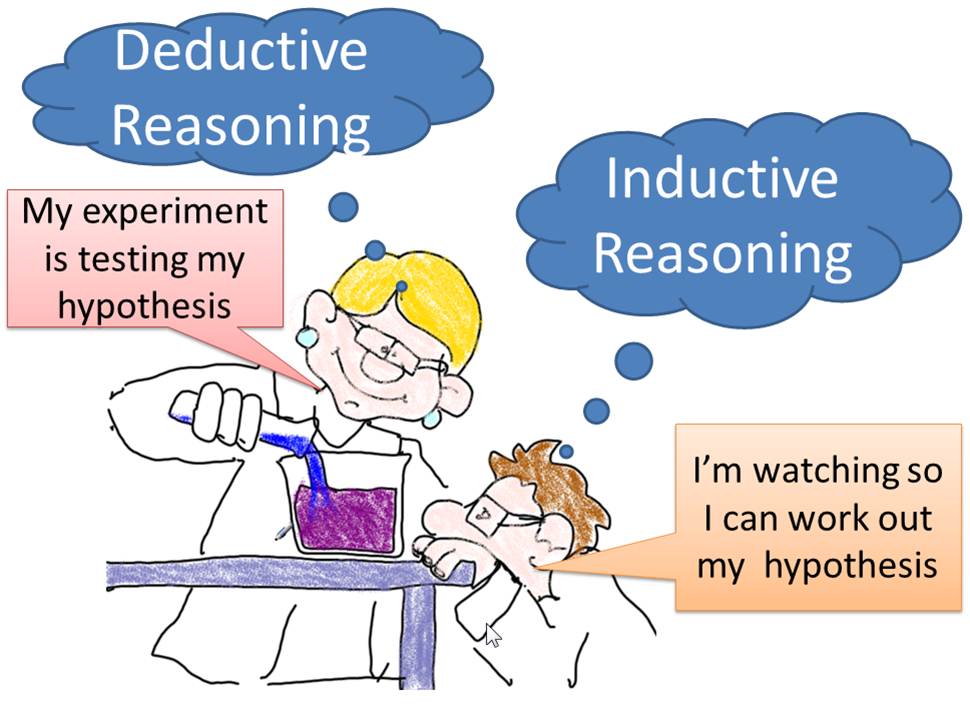TOK Reasoning by induction (extension)
Deductive and inductive reasoning in the scientific method

A little magic trick is OK as a start, but now we go a bit deeper. How are these types of reasoning used by Scientists. How does the Scientific method work in practice.
A comment on the video below claims that, "this really should be the type of lesson early high school kids get. all i remember doing in high school is burning things in a bunsen burner. i didn't have appreciation of the scientific method until i reached my 20s."
Description
Aim:
To learn more from real philosophers or scientists about the scientific method.
Activity 1: Induction or falsification in the scientific method.
- Watch the video by Massimo Pigliucci, Professor of Philosophy at the City University of New York
- Answer the the questions below about the Scientific method and the two types of reasoning.
Questions
- What is the problem with scientific reasoning by induction?
- What was the new idea from Popper?
- How does science really work? Is it by falsification, induction or something else?
Activity 2: Feynman's description of the Scientific Method
Direct link to the youtube video
Answer the the questions below about the Scientific method and the two types of reasoning.
Questions
- What does Feynman say is the first thing to do when looking for a new law?
- If a hypothesis disagrees with experiment, then what is it?
- Can you prove that it is impossible that there are flying saucers?
Why is it that you can never prove a theory right?
Is the statement, "You can never prove a theory right with science" one of the weaknesses of Induction?
Explain your argument.
Students can write their answers on the ![]() TOK Induction extension work question sheet.
TOK Induction extension work question sheet.
Teachers' notes
These general TOK concepts should be included in the students answers to the questions on the sheet. If not here is alist which can be used to complete some of the details. Of course there are many other poinst which can be made.
- Inductive reasoning comes from lots of observations of something, leading to a generalisation which is true in nearly all cases.
- Deductive reasoning is a process of logical steps which lead to a specific conclusion.
- Scientific method is the creation of many hypotheses which are tested by experiment, and deductive logic.
- One experiment can support a hypothesis, but this doesn't make the hypothesis certain
- One experiment can disprove a hypothesis with certainty.
- Deduction could also be described in science as, the step by step disproval of lots of different hypotheses until the only one is left 'not disproved'. This is therefore the best scientific explanation.

 IB Docs (2) Team
IB Docs (2) Team
